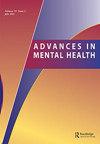Online peer support for children with a family member experiencing mental health challenges: perspectives from children and young people during the COVID-19 pandemic
IF 1.7
Q3 PSYCHIATRY
引用次数: 0
Abstract
ABSTRACTObjective This study aimed to investigate the benefits and difficulties with providing online peer support services for children with a family member experiencing mental health challenges.Method Using a qualitative descriptive design, the perspectives were gathered of Australian children and young people with a family member experiencing mental health challenges and had participated in online peer support activities during the COVID-19 restrictions of 2020 and 2021. Five age-differentiated focus groups were held with participants aged between 8 and 24 years (N = 32), and interviews were held with youth peer leaders (N = 3) and program facilitators (N = 6).Results This paper presents seven themes generated from the qualitative data. The themes captured the benefits of an online setting such as enabling greater accessibility, participation and comfort. Juxtaposed with this, themes also captured challenges such as the unease and risks of participating online, as well as the perspective that in-person activities facilitated stronger and quicker connections.Discussion It was concluded that a blended model of online and in-person support services is likely to be valuable for children with a family member experiencing mental health challenges to ensure accessibility and provide the capacity to meet the varied needs of this cohort.KEYWORDS: Peer supportonlinechildrenparentsmental health AcknowledgmentsWe would like to acknowledge the children and young people who shared their experiences with us through an interview or a focus group. We would also like to acknowledge the Satellite Foundation for their participation in this research and their support for the overall evaluation. Lastly, we would like to acknowledge the support for this evaluation by Emerging Minds staff. A copy of the overarching evaluation can be obtained from the Emerging Minds website (www.emergingminds.com.au) or by contacting the corresponding author.Disclosure statementNo potential conflict of interest was reported by the author(s).Additional informationFundingThis work was supported by the Australian Government Department of Health.为家庭成员中有精神健康问题的儿童提供在线同伴支持:2019冠状病毒病大流行期间儿童和年轻人的观点
摘要目的探讨在线同伴支持服务对家庭成员存在心理健康问题的儿童的益处和困难。方法采用定性描述性设计,收集了在2020年和2021年COVID-19限制期间有家庭成员经历心理健康挑战并参与在线同伴支持活动的澳大利亚儿童和年轻人的观点。5个不同年龄的焦点小组,参与者年龄在8 - 24岁之间(N = 32),并与青年同伴领袖(N = 3)和项目促进者(N = 6)进行访谈。结果本文从定性数据中得出了7个主题。这些主题抓住了在线环境的好处,例如使更大的可访问性、参与性和舒适性。与此同时,主题还反映了在线参与的不安和风险等挑战,以及面对面活动促进更强、更快速联系的观点。结论是,在线和面对面支持服务的混合模式可能对有家庭成员经历精神健康挑战的儿童很有价值,以确保可获得性并提供满足这一群体各种需求的能力。关键词:同伴支持在线儿童父母心理健康感谢我们要感谢通过访谈或焦点小组与我们分享他们经历的儿童和年轻人。我们还要感谢卫星基金会对这项研究的参与和对全面评估的支持。最后,我们要感谢Emerging Minds工作人员对本次评估的支持。总体评估的副本可以从Emerging Minds网站(www.emergingminds.com.au)获得,也可以联系通讯作者。披露声明作者未报告潜在的利益冲突。本研究得到了澳大利亚政府卫生部的支持。
本文章由计算机程序翻译,如有差异,请以英文原文为准。
求助全文
约1分钟内获得全文
求助全文

 求助内容:
求助内容: 应助结果提醒方式:
应助结果提醒方式:


